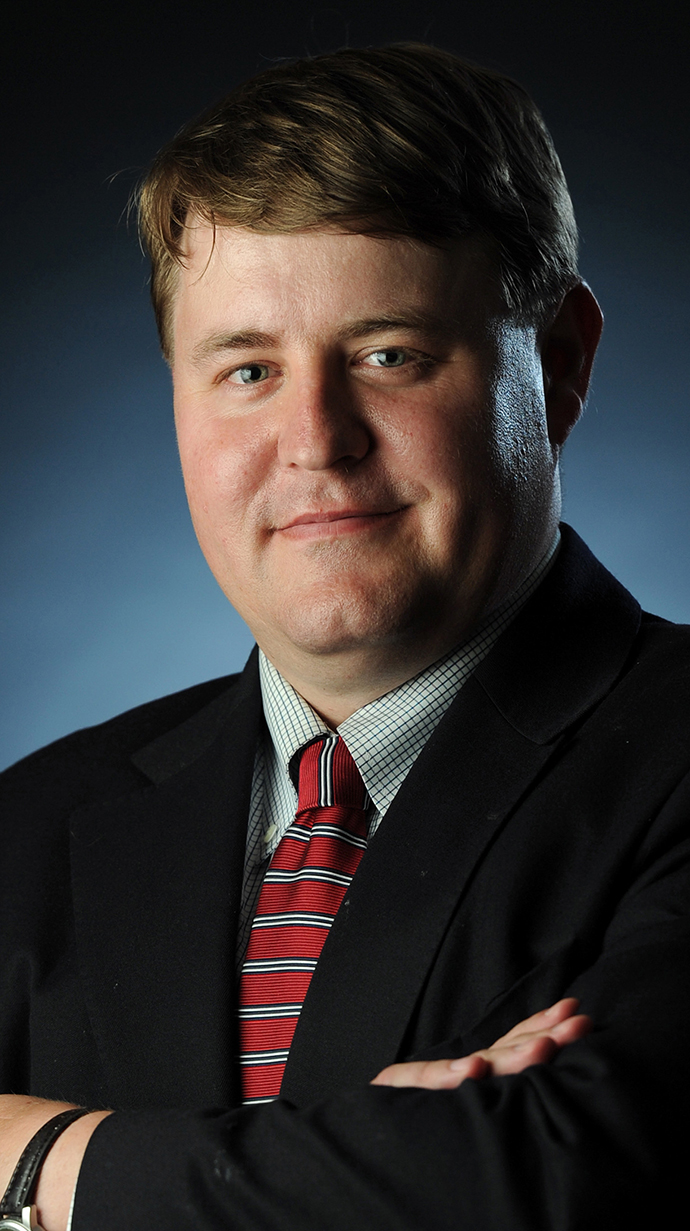Old-School College Sports Are on the Way Out. What Comes Next?
UM professor co-authors book on game-changing issues in sports law
OXFORD, Miss. – College sports are in the midst of dramatic change, and after a litany of lawsuits and appeals, fans are likely uncertain of the future of America's favorite pastimes. A University of Mississippi professor's latest book seeks to demystify the madness.
William Berry, associate dean for research and Montague Professor of Law, partnered with sports attorney and law professor Daniel Lust to write "College Sports Law in a Nutshell" (West Academic Publishing, 2024).
"There's a lot going on in college sports right now," Berry said. "These books are traditionally used as study aids for law students; they take complicated legal cases and describe them in a clear, straightforward way.

"But this book is also going to be helpful for athletic administrators, athletes and anybody who wants to have an understanding of what's going on in college sports."
College sports are approaching what Lust called a "wild, wild West" era, where the rules that have governed university play are changing and no one quite knows what will happen next.
The National Collegiate Athletic Association has overseen athletics programs at 1,100 colleges and universities for decades. But after recent litigation, the association seems to be taking a step back, Lust said.
"The NCAA used to be the sheriff, and they used to punish the school and athletes if they stepped out of line," the New York professor said. "In the new era, it seems the NCAA is very concerned with committing an antitrust violation.
"That term 'wild, wild West' is generally when there's no sheriff in town. The NCAA has abdicated that role, and the schools are left to police themselves."
One major move in the world of college athletics is the push for players to be considered employees of their colleges and universities, a move the National Labor Relations Board upheld in February.
This ruling opens not only the students' ability to unionize but also makes them subject to the Fair Labor Standards Act. This would require them to be paid a minimum wage, given overtime pay and be offered health care and pension benefits, Berry said.
If players of revenue-generating sports – primarily football and basketball – get paid a regular wage, that money must come from somewhere, he said.

"The other big piece of all this is that all the football money; it pays for all the nonrevenue sports," Berry said. "And so those athletes probably will not get paid, but also those scholarships will start to dry up and disappear.
"We'll have a lot fewer nonrevenue sports because we have to pay the players."
Although Title IX would protect some women's sports, this move could lead to many nonrevenue sports – such as tennis, golf, softball and soccer – being relegated to club status.
This issue is just one of the many facing college athletics, Lust said.
The NCAA is also facing several lawsuits, including House v. NCAA, which appears to be moving toward a settlement. It seeks billions in damages for thousands of players on the premise that the NCAA's amateurism rules violate antitrust law. This law bars exclusive contracts that impair competition or restrict trade.
Also at play is an ongoing push for players to receive a portion of the earnings made through televised sports, commercials and advertisements, and a reconstruction on the rules surrounding name, image and likeness.
"Professor Berry and I were trying to finish the book and huge things just kept happening," Lust said. "There's a lot of people right now – be they educators, lawyers or college sports fans – who are being turned off from college sports because of all those new rules.
"This book is for them, for fans, professionals, parents and everyone involved to understand what the changes are going forward."
Top: College sports programs are undergoing dramatic changes, and an Ole Miss law professor is helping fans make sense of the new athletics landscape in his new book. Graphic by Cole Russell/University Marketing and Communications
